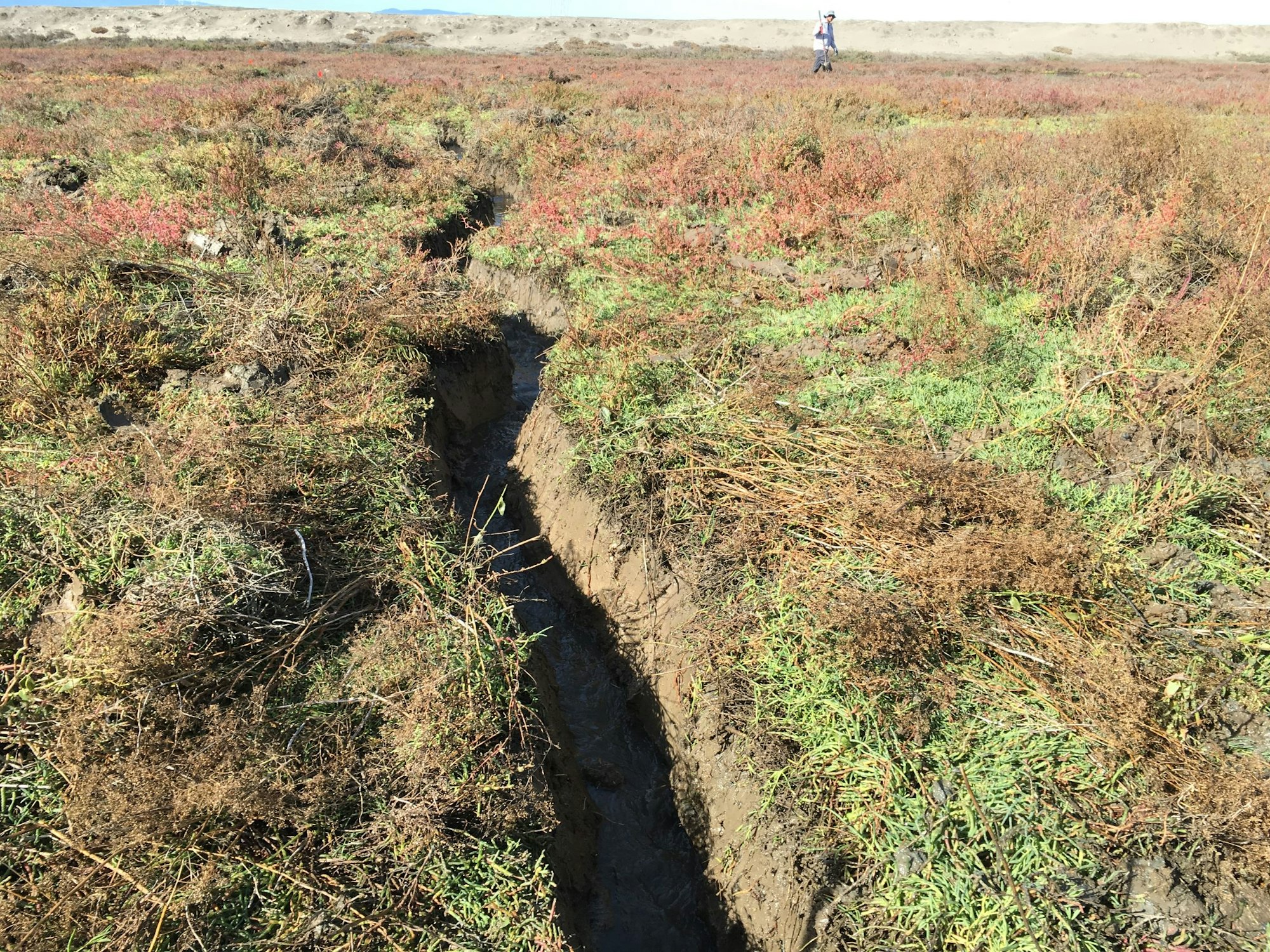Fall Newsletter 2019
Quarterly Newsletter and Updates
Aedes aegypti Found in Nearby Counties

Aedes aegypti, an invasive mosquito, has recently been found in the nearby counties of Stanislaus, San Joaquin, Sacramento, and Placer. This non-native mosquito can spread diseases such as chikungunya, dengue, and Zika. The Aedes aegypti mosquito is not currently known to be in Alameda County, but we encourage residents to eliminate items in their yard that could hold water. Aedes aegypti only need a bottle cap of water to grow. They lay their eggs just above the water line in small containers, such as saucers under potted plants, birdbaths, ornamental fountains, or discarded tires. For more information about the Aedes aegypti mosquito visit our website: https://mosquitoes.org/invasive-mosquitoes.
Ditching

September marked the beginning of the District's source reduction work in tidal marsh areas. Our field staff will be going out weekly every Tuesday and Thursday through the month of January, performing maintenance to clear existing ditches of sediment and vegetation growth so water can flow in and out with the tide. Enhancing the circulation of water in tidal areas decreases the likelihood of mosquito breeding and reduces the need for mosquito control treatments. This work is an important part of the District's Integrated Pest Management (IPM) Program.
Please Pardon Our Dust
This April we started construction in the building to modernize the office and transform space we were primarily using for paper storage and office supplies into space for staff. We have been located at our Hayward office since the completion of the building in 1984. Since then we have had additional construction done to add onto the building for what is now our laboratory and field staff office and also an expansion of our men's locker room. With an estimated timeline of six months, the finishing touches are currently being put into place and should be finished in October. Once the project inside the office is complete plans are in place to install solar panels on top of our carports to maximize our electricity usage and costs.
West Nile Virus

Our District has had 174 dead birds reported to us so far this year. Out of the 174 birds reported, 32 were suitable for testing and all 32 tested negative for West Nile Virus (WNV). Testing dead birds is an important way for our District to detect WNV and we continue to encourage residents to report them. If you come across a dead bird please report it online at www.westnile.ca.gov. It is important to note that WNV has been found in other counties in California, so if you plan on traveling this summer make sure to wear an insect repellent that contains DEET, Picaridin, IR3535, or oil of eucalyptus. We also recommend making sure the windows in your home have screens on them or to keep them shut so that mosquitoes do not come inside your home. If you plan on spending time outdoors during dusk and dawn wear insect repellent on exposed skin and long, loose-fitting clothing to prevent mosquito bites. Routinely check for standing water in your yard to prevent mosquito breeding.
